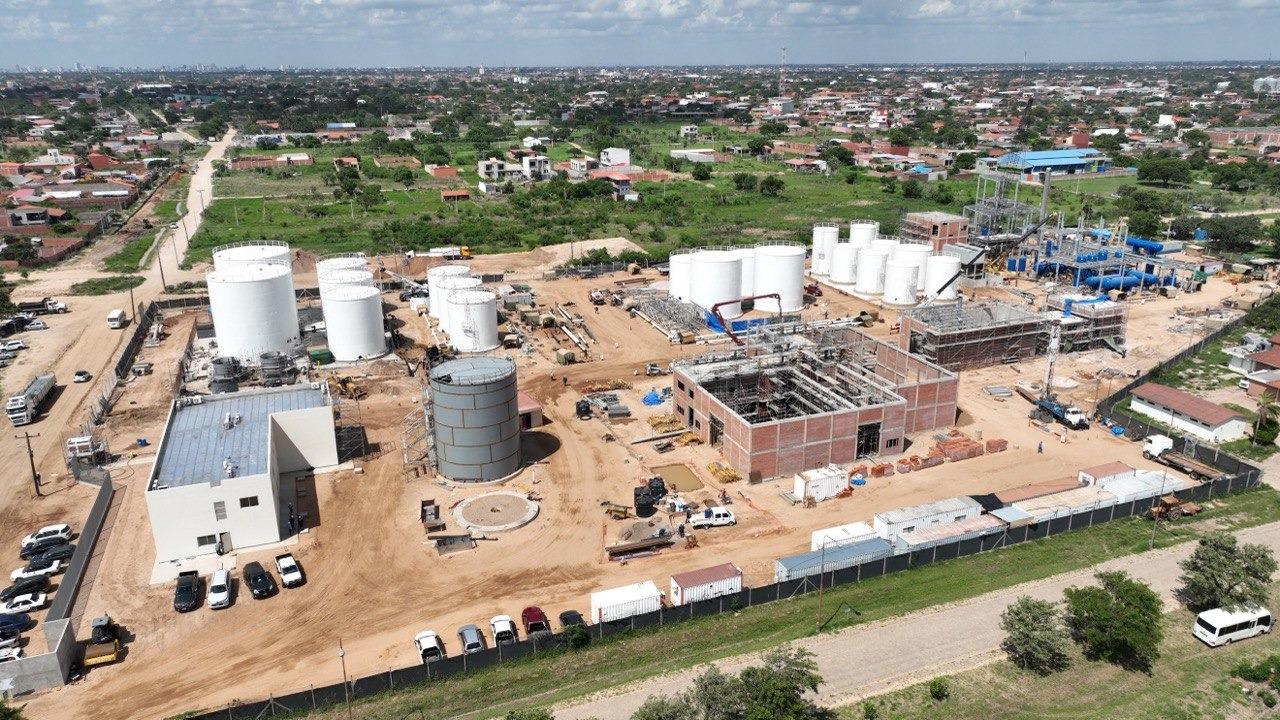
The new facilities will produce 1,500 barrels daily; Its location required an investment of close to US$ 50 million.
The first Bolivian FAME I Biodiesel plant (biofuel made through the transesterification of vegetable oils), located near the Guillermo Elder Bell Refinery, in the city of Santa Cruz de la Sierra, will begin operations this Tuesday.
The president of Bolivia, Luis Arce, will be in charge of inaugurating the work that began construction in December 2022. Authorities of the Ministry of Hydrocarbons and Energy; and the Bolivian Fiscal Oil Fields (YPFB) will accompany the Head of State.
Arce announced on March 19 that the first biodiesel plant will be inaugurated at the end of this month and that it will have a certain mixture of fossil diesel with vegetable oils.
The Vice Minister of Industrialization, Marketing, Transportation and Storage of Hydrocarbons, Adams Hurtado, reported on the 14th of this month that the plant is one of the three factories that will be located in the country with the aim of reducing the costs of subsidizing fossil fuels. .
The first biodiesel plant will produce 1,500 barrels daily. Its location required an investment of close to US$50 million.
The production of biodiesel has the purpose of saving on the subsidy that the Government makes for the import of fossil fuels.
“In terms of subsidy savings, from that plant alone, we are talking about US$50 million,” Hurtado said at the time.
FACTORIES
The FAME II Biodiesel Plant is also located in the highland city of El Alto, which also has a production capacity of 1,500 barrels per day, about 86 million liters per year.
The construction of a Renewable Hydrotreated Vegetable Oil (HVO) Diesel Plant is also planned, which will produce 9,000 barrels per day (about 1.42 million liters).
“Two biodiesel plants are US$100 million, plus the HVO plant that is planned is US$300 million, a total of US$400 million in subsidy savings,” Hurtado indicated on March 14.
The raw material required for biodiesel plants are plantations of oleiferous species, such as macororó, jatropha, soy, totaí, cusi, among others, which are produced in La Paz, Pando, Tarija and Santa Cruz.









